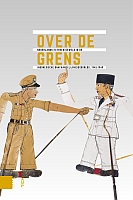Over de grens
Nederlands extreem geweld in de Indonesische onafhankelijkheidsoorlog, 1945-1949
Author(s)
NIOD Instituut voor Oorlogs- Holocaust- en Genocidestudies
Koninklijk Instituut voor Taal- Land- en Volkenkunde (KITLV)
Nederlands Instituut voor Militaire Historie (NIMH)
Contributor(s)
Oostindie, Gert (editor)
Schoenmaker, Ben (editor)
Van Vree, Frank (editor)
Language
DutchAbstract
On 17 August 1945, two days after the Japanese surrender that also brought an end to the Second World War in Asia, Indonesia declared its independence. The declaration was not recognized by the Netherlands, which resorted to force in its attempt to take control of the inevitable process of decolonization. This led to four years of difficult negotiations and bitter warfare. In 2005, the Dutch government declared that the Netherlands should never have waged the war. The government’s 1969 position on the violence used by the Dutch armed forces during the war remained unchanged, however: although there had been ‘excesses’, on the whole the armed forces had behaved ‘correctly’. As the indications of Dutch extreme violence mounted, this official position proved increasingly difficult to maintain. In 2016, the Dutch government therefore decided to fund a broad study on the dynamics of the violence. The most important conclusions of that research programme are summarized in this book. The authors show that the Dutch armed forces used extreme violence on a structural basis, and that this was concealed both at the time and for many years after the war by the Dutch government and by society more broadly. All of this – like the entire colonial history – is at odds with the rose-tinted self-image of the Netherlands.
Keywords
Indonesia; decolonization; independence; violence; war; Indonesië; dekolonisatie; onafhankelijkheid; geweld; oorlogDOI
10.5117/9789463726382ISBN
9789463726382, 9789048556779, 9789463726481, 9789048557172, 9789463726382Publisher
Amsterdam University PressPublisher website
https://www.aup.nl/Publication date and place
2022Classification
National liberation and independence
Military history: post-WW2 conflicts
Modern warfare
Armed conflict


 Download
Download